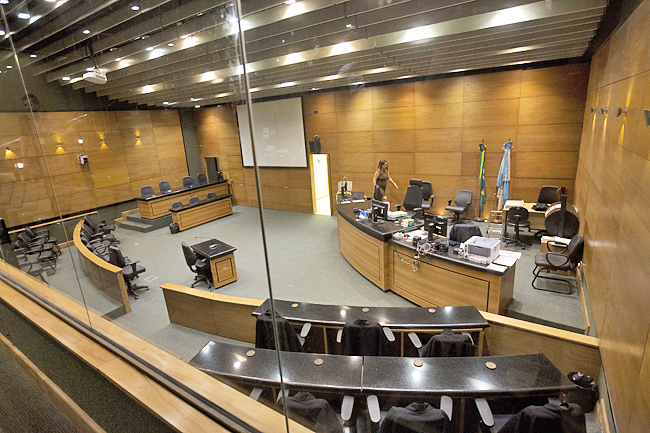RIO DE JANEIRO (AP) – A federal court sentenced Brazilian engineer Mário Marcelo Santoro to 27 years in prison on Thursday, after he confessed to the 2018 murder of former girlfriend Cecília Haddad in Australia.
Santoro, today in his mid 40s, was convicted of aggravated homicide, asphyxiation, femicide and concealment of a corpse.
The seven-person jury in the Rio de Janeiro – made of six women and one man – delivered its decision on Thursday morning. Santoro’s attorney said he will appeal.
In April 2018, the body of Haddad, then 38, was found in the Lane Cove river in Sydney, Australia, a few miles from her apartment. By then, Santoro had already left the country and flown back to Brazil.
Based on thousands of messages reviewed by Australian law enforcement and testimonies from friends and family members, Haddad had broken up with Santoro, but he refused to accept her decision.
About 10 days before her death, Haddad had given Santoro an ultimatum, asking him to leave the apartment or else she would call the police, said Australian detective John Edwards, according to O Globo newspaper and other media outlets that attended the trial. At one point, Haddad had left her place to stay with some friends.

Cellphone tracking placed Santoro at Haddad’s apartment and by the river where her body was later found, O Globo reported. Sand and vegetation from that same area was also found in the victim’s car, which Santoro was seen driving on images caught by security cameras.
In testimony he delivered on Wednesday, Santoro acknowledged going to Haddad’s house to retrieve his passport to catch his flight back to Brazil.
He said they got into a fight and he “grabbed her neck” and “squeezed really hard” before “she fell limp” in his arms.
Santoro, who otherwise appeared fairly relaxed during the trial’s long and detailed testimonies, cried while confessing to Haddad’s murder.
“The defendant only confessed in the jury room, after extensive evidentiary material had been produced against him,” said federal judge Ian Legay Vermelho.
“In other words, he did not confess before the Australian police when he arrived in Brazil. He did not confess before the Brazilian investigators, nor before the judicial stages he had gone through up to that day.”





